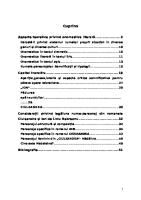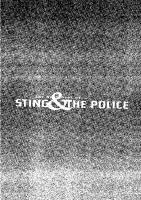MULTIPLE CHOICE. Choose The One Alternative That Best Completes The Statement or Answers The Question [PDF]
Exam Name___________________________________ MULTIPLE CHOICE. Choose the one alternative that best completes the statem
36 0 121KB
Papiere empfehlen
![MULTIPLE CHOICE. Choose The One Alternative That Best Completes The Statement or Answers The Question [PDF]](https://vdoc.tips/img/200x200/multiple-choice-choose-the-one-alternative-that-best-completes-the-statement-or-answers-the-question.jpg)
- Author / Uploaded
- Boshra Boshra
Datei wird geladen, bitte warten...
Zitiervorschau
Exam Name___________________________________
MULTIPLE CHOICE. Choose the one alternative that best completes the statement or answers the question. 1) The process of gaining access to data from intended participants. This involves participants agreeing to be interviewed, within agreed limits. This is the definition for ________. A) Continuing Access B) Informed Consent C) Physical Access D) Cognitive Access
1)
2) Which is the odd one out? A) The Freedom of Information Acts B) The European Convention on Human Rights. C) Codes of Conduct (the MRS, BPS, CIM, CMI) D) The Data Protection Law
2)
3) Position achieved when intended participants are fully informed about the nature, purpose and use of research to be undertaken and their role within it, and where their agreement is given. This is the definition for ________. A) Cognitive Access B) Informed Consent C) Continuing Access D) Physical Access
3)
4) The Data Protection Act has eight principles to make sure that personal information is handled properly. Which of these is not one of the eight? A) Data must be adequate B) Data must be fairly processed C) Data must be processed for limited purposes D) Data must be kept for five years
4)
5) The Data Protection Act has eight principles to make sure that personal information is handled properly. Which of these is not one of the eight? A) Data must be lawfully processed B) Data must be kept in a fireproof safe C) Data must be accurate D) Data must be processed in line with your rights
5)
6) The initial level of gaining access to an organisation to conduct research. This is the definition for ________. A) Cognitive Access B) Continuing Access C) Informed Consent D) Physical Access
6)
TRUE/FALSE. Write 'T' if the statement is true and 'F' if the statement is false. 7) Explaining the benefits of the research project to a participating company is bad practice.
1
7)
MULTIPLE CHOICE. Choose the one alternative that best completes the statement or answers the question. 8) Which of the following is not an appropriate strategy to gain access? A) Being clear about the research purpose B) Approaching relevant associations for contacts C) Using appropriate language when approaching an organisation D) Offering bribes to a company
8)
9) The Data Protection Act has eight principles to make sure that personal information is handled properly. Which of these is not one of the eight? A) Data must be made available to anyone for £5 B) Data must not be transferred to countries without adequate protection C) Data must be processed in line with your rights D) Data must be processed for limited purposes
9)
10) Gaining agreed research access to an organisation on an incremental basis. This is the definition for ________. A) Informed Consent B) Physical Access C) Continuing Access D) Cognitive Access
10)
TRUE/FALSE. Write 'T' if the statement is true and 'F' if the statement is false. 11) The Data Protection Act was designed to give us the freedom to see Government Information.
11)
12) The guiding principles of the The Data Protection Act are transparency and consent.
12)
MULTIPLE CHOICE. Choose the one alternative that best completes the statement or answers the question. 13) Here is an extract from a letter requesting participation in a research study. We are a group of second year undergraduate students at the University of Northminster conducting research into communication between staff and students within the Business School. We are seeking your support in our research. What is wrong? A) Does not explain what will happen to information collected B) Does not explain why you want to gain access C) Is badly written D) Does not state who wants access
13)
14) What is wrong with this research design? Questionnaires are delivered through the letterboxes of 100 homes. A) Some people may not reply B) It is against the law to deliver unsolicited questionnaires C) The researcher must knock on the door D) There is no cover letter
14)
15) The practice of taking someone elses work or ideas and passing them off as ones own is a definition from The New Oxford Dictionary of English (1998). This refers to ________. A) Copyright B) Sugging C) Data protection D) Plagiarism
15)
2
16) An employee has been asked to act as a researcher and talk to customers about a new product which is being tested and may be launched next year. At one office one respondent introduces the researcher to a representative from a Trade Magazine. In casual conversation our employee mentions the new product. This is ________. A) A good idea to get early press coverage B) Not a problem C) Good practice D) Bad practice
16)
TRUE/FALSE. Write 'T' if the statement is true and 'F' if the statement is false. 17) If we only interviewed those people easily available the validity and reliability of the project falls into question.
17)
18) It is against the code of good practice to ensure that your work and data records are duplicated.
18)
MULTIPLE CHOICE. Choose the one alternative that best completes the statement or answers the question. 19) A letter requesting co-operation ends like this. Which condition applies? Yours sincerely Gary Brown A) The researchers name is stated B) A way is given to contact the researcher C) It explains why the researcher wants to gain access D) It is breaks the Harvard convention on letter writing
19)
TRUE/FALSE. Write 'T' if the statement is true and 'F' if the statement is false. 20) Consent means: ensuring individuals have a very clear and unambiguous understanding of the purpose for collecting the data and how it will be used.
20)
21) Transparency means: individuals must give their consent to their data being collected at the time the data is collected, and can opt out of any subsequent uses of the data.
21)
MULTIPLE CHOICE. Choose the one alternative that best completes the statement or answers the question. 22) A student is investigating supermarket use of shelf space. This means talking to different store managers. Our student tells each of his respondents the details of what two of the other managers have said. This is ________. A) Good practice B) A good idea to secure cooperation and interest C) Not a problem D) Bad practice
22)
23) The participant lacks knowledge and the researcher uses deception to collect data. What is this? A) Lack of consent B) Implied consent C) Informed consent D) Something else
23)
24) Being able to talk to the people you need in a situation that is best suited to providing results. What is this? A) Lack of consent B) Implied consent C) Informed consent D) Something else
24)
3
25) The participant consent given freely and based on full information What is this? A) Lack of consent B) Implied consent C) Informed consent D) Something else
25)
26) The participant does not fully understand his rights. The researcher proceeds giving reassurances What is this? A) Lack of consent B) Implied consent C) Informed consent D) Something else
26)
TRUE/FALSE. Write 'T' if the statement is true and 'F' if the statement is false. 27) Letters written to potential respondents should not contain their name and address as this is personal information.
27)
28) Letters written to potential respondents should not be too long.
28)
MULTIPLE CHOICE. Choose the one alternative that best completes the statement or answers the question. 29) A letter requesting co-operation include this. Which condition applies? I found your name and address in the Yearbook of UK Bottling Plants. I am writing to enquire whether you would allow me to ask a few questions on this topic. I can assure you that your comments will be combined with those of others. You will not be identified directly or indirectly to other respondents or in the final report. You are free to withdraw from the survey at any time. A) The researchers name is stated B) It explains what will happen to the information C) It provides assurances of confidentiality D) It explains why the researcher wants to gain access E) A way is given to contact the researcher
29)
30) Telephone contact will be improved if ________. A) You enclose a SAE B) Give a link to a web page with more explanation of the project C) You offer to call back D) Link to your privacy policy
30)
31) Email Contact will be improved if ________. A) You give a link to a web page with more explanation of the project B) You use coloured paper C) You offer to call back D) You enclose a SAE
31)
32) Postal contact will be improved if ________. A) You charge the respondent money B) You link to your privacy policy C) You give a link to a web page with more explanation of the project D) You enclose a SAE
32)
TRUE/FALSE. Write 'T' if the statement is true and 'F' if the statement is false. 33) As a researcher you only need to worry about ethical issues when interacting with participants.
4
33)
MULTIPLE CHOICE. Choose the one alternative that best completes the statement or answers the question. 34) The term netiquette refers to which of the following ________. A) Rules on how to act ethically when using the internet B) Offering presents to participants C) Rules on how to act ethically when visiting a company D) Politeness
34)
35) Which of the following is an important determinant of what you choose to research and how you do your research? A) Ease B) Feasibility C) Generalisability D) Speed
35)
TRUE/FALSE. Write 'T' if the statement is true and 'F' if the statement is false. 36) Qualitative research is likely to have relatively more ethical concerns that quantitative research.
36)
MULTIPLE CHOICE. Choose the one alternative that best completes the statement or answers the question. 37) Ethical concerns are associated with the researcher's ________. A) Personality B) Gender C) Age
37) D) Role
38) Which of the following is an ethical concern with the observation technique? A) Reliability B) Reflexivity C) Reactivity
D) Validity
38)
TRUE/FALSE. Write 'T' if the statement is true and 'F' if the statement is false. 39) You do not need to gain informed consent as an internal researcher.
39)
40) You do not need to worry about ethical concerns or informed consent when withholding your identity as a researcher.
40)
5
Answer Key Testname: UNTITLED6
1) D 2) C 3) B 4) D 5) B 6) D 7) FALSE 8) D 9) A 10) C 11) FALSE 12) TRUE 13) A 14) D 15) D 16) D 17) TRUE 18) FALSE 19) A 20) FALSE 21) FALSE 22) D 23) A 24) D 25) C 26) B 27) FALSE 28) TRUE 29) C 30) C 31) A 32) D 33) FALSE 34) A 35) B 36) TRUE 37) D 38) C 39) FALSE 40) FALSE
6









